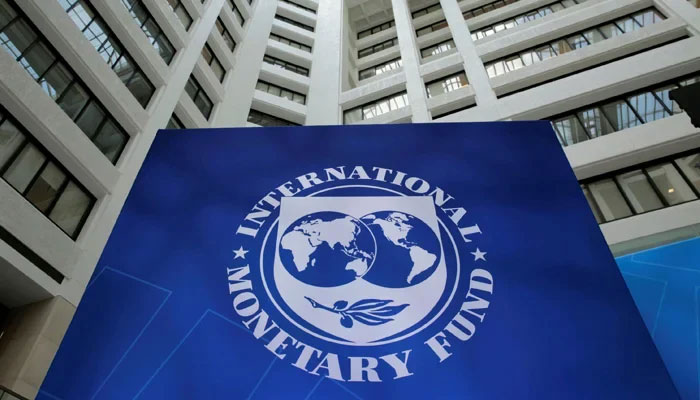IMF's imperialism and Pakistan
Pakistan needs serious economic reforms to end crisis and elite capture but not at IMF's dictation
May 15, 2023

Pakistan is desperately looking for the completion of the ninth review of the International Monetary Fund (IMF) programme to get $1.1 billion tranche. The government is claiming that it has fulfilled all the conditions of the lender. But the IMF is asking for more conditions to be fulfilled, asking that more funds be arranged from commercial banks or friendly countries before the release of the tranche.
The IMF spokeswoman said in her press conference that “Obtaining commitments of significant additional financing is essential before the IMF approves the release of pending bailout funds that are crucial for Pakistan to resolve an acute balance of payments crisis. Our team is very heavily engaged of course with the Pakistani authorities because Pakistan indeed faces a very challenging situation.”
But the IMF is still not ready to help Pakistan in a crisis situation. Pakistan was hoping to get some relief after the devastating floods last year but the IMF refused to provide relief to the flood-affected people of Pakistan and imposed even harsher conditions.
Pakistan always looked to the IMF to overcome its balance of payments crisis and financial crunch and the IMF always extended support to Pakistan. The reason was that Pakistan was a close US ally during the cold war. The coalition government led by PM Shahbaz Sharif was expecting the same sort of treatment from the IMF.
But the IMF gave a tough time to the coalition government. We were told that the IMF’s stubborn attitude is the result of the open violations of IMF conditionalities by the previous PTI government. But that was not the only reason for the harsh treatment meted out to Pakistan. The fast-changing geopolitical situation was an equally important reason.
Friendly countries including the UAE, Saudi Arabia and China have already pledged to provide financial assistance to boost the fast-depleting foreign reserves. Pakistan has currently $4.38 billion in the State Bank’s reserves which is just worth one month’s import bill. Now the IMF is asking to arrange additional finances.
Clearly, the IMF is using delaying tactics in releasing the last tranche. The IMF programme will end in June so there is little time left to complete the programme according to the original agreement. The question that arises here is: why does the IMF continue to change the goalpost and attach more strings to its bailout package?
Why is the IMF imposing harsh conditions on Pakistan, which is already facing a severe economic crisis? The IMF showed no sympathy for the people of Pakistan even after the devastating floods last summer.
The IMF's attitude towards Pakistan and other developing countries seeking loans is not just the issue of economic policy or ensuring the economic stability in these countries but part of a big geopolitical game that is being played out.
There are political reasons behind the harsh attitude of the IMF. The geopolitical struggle between the Western powers and China/Russia is the main reason. Western capitalist powers are in economic decline and economic power is gradually shifting from the Global North to the Global South.
China, India, Indonesia, Brazil and other emerging economies are rising as new economic powerhouses. More and more countries are willing to join BRICS. The US is no more the sole superpower of the world. It is facing a serious challenge from China.
Pakistan is paying a heavy price for pursuing an independent foreign policy. The country is trying to adopt a balanced foreign policy and protect its national interests like any other sovereign nation. Pakistan is not toeing the Western policy on China and Ukraine and its close military diplomatic and economic ties with China are another bone of contention between Pakistan and the US. The Americans consider projects like CPEC to be a direct challenge to their dominance and influence in the region.
Pakistan remained a close US ally for most of its history. But the situation changed in the last two decades as the US developed a broader relationship with India to try and contain rising China. India is an ally of the US in this geopolitical struggle.
Neoliberal economists and financial experts want us to believe that the IMF is an international lender, and it imposes conditionalities to stabilise the economy and fix economic problems. They have created an impression that the IMF only deals with economic issues, and it has nothing to do with geopolitics and international relations. The fact is that the IMF is an integral part of the international imperialist financial and economic system.
Imperialist powers including the US are using international financial institutions like the IMF and World Bank as their tools to force governments of developing countries to side with them. American imperialism has a history of using the IMF as a tool to arm-twist poor countries. The IMF forced conditions on developing countries to surrender their economic and political sovereignty for much-needed loans.
The IMF is not an independent financial institution but an imperialist tool to serve and protect the imperialist interests of powerful nations controlling the world economy and international financial system. The IMF adopted neoliberalism and the free market economy as its main ideology and told developing countries to adopt the neoliberal economic policies of privatization, deregulation, and austerity in the name of structural adjustment programmes. It insists on following the failed economic policies of neoliberalism and the free market economy.
Pakistan needs to initiate serious economic reforms to end the economic crisis and elite capture. But it should not be done on IMF dictations.
The writer is a freelance journalist.
Disclaimer: The viewpoints expressed in this piece are the writer's own and don't necessarily reflect Geo.tv's editorial policy.
Originally published in The News











